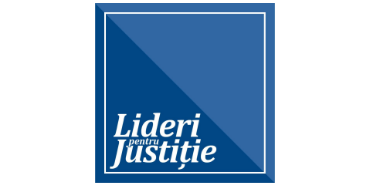Reportedly, Archimedes claimed the ability to move the Earth if given a firm place and a proper lever. ANI–the National Integrity Agency is called to move Romania’s politicians and public officers from the highest levels of perceived corruption towards accountability and sustainable integrity. In previous posts, I discussed ANI‘s mission to work primarily on administrative prevention and control mechanisms, as well as ANI‘s organizational and operational troubles to be tackled this spring. With the ongoing recruitment/selection procedures for a President and 33 integrity inspectors, there is hope for ANI to have a proper lever. What about the firm place, then?
Last Tuesday, the Senate‘s standing committees on human rights and legal issues jointly debated on whether to approve or reject amendments to ANI‘s legal framework. Most amendments to be considered had already been enacted last June and December by means of government decrees, but parliamentarians have the final say. The crux of the political debate focused on the legal distinction between unjustified or illicit assets whose eventual confiscation would be required of the courts. Indeed, such legal wording is the firm place that ANI should be using when exercising its leverage on administrative control. So heated and robust was the meeting, that one committee Chair helplessly resigned during the debate.
Still, as in most political debates, the issue may have been poorly framed. UNCACrequires that illicitly acquired assets should be recovered–so does Romanian law. But our Constitution imposes a presumption that any and all assets are legally acquired! The word illicit, in and of itself, until recently meant only illegal by criminal means. The Constitutional Court in March 2007 ruled otherwise (surprisingly, right!–though, probably, for the wrong reasons), and opened the debate over what and how assets are legally justified. Therefore, the amendments of last June properly provide that ANI‘s inspectors may only verify assets as to whether they be justified, and then ask the courts to decide whether unjustified assets were illicitly acquired and, subsequently, should be confiscated.
However, the courts are at liberty to nullify patrimonial benefits–regardless of whether simply unjustified or fully illicit–as a result of a conflict of interests situation (art. 45(3) of ANI‘s law). Of course, the political debate of last week avoided the obvious questions: How will the courts nullify benefits? Based on what legal provisions? With what legal and procedural arguments? At least three (simplified) sanction-scenarios may be considered:
- the court finds enough evidence to rule that assets are illicit, and thus decides on the confiscation, in full agreement with the constitutional text;
- the court has not enough evidence to rule assets illicit, but they are clearly acquired by unjustified means (discrepant with fiscal declarations), and the court applies a fiscal sanction that may vary from full forfeiture to a slap on the wrist; and/or
- the court has not enough evidence to rule the assets acquired by unjustified means, but may want to follow the spirit of UNCAC provisions, and thus decides to nullify shaky property titles, repositioning the contracting parties in their preceding patrimonial state/situation.
Thus, while the Senate yesterday came short of approving the amendments of last week, ANI needs a little more than just the law, in order to finally have its firm place needed to move Romania’s political class. Namely, it needs confirmations from the courts, in jurisprudence–and this is quite difficult to achieve in a legal system not based on precedents. Moreover, in order to secure its own sustainability, ANI may need more than just one lever–at least good cooperation with the fiscal authorities is a must! [As the current Chair of the Integrity Council is the Secretary-General of ANAF, this prerequisite seems to have been solved, unless this situation may generate conflicts of interests.] Provided that ANI‘s legal framework doesn’t change every 6 months, as in the case of the anti-corruption prosecution, everything else boils down to recruiting quality inspectors and hiring good lawyers. I’m looking forward to witnessing this soft anti-corruption revolution, during the upcoming years 🙂






